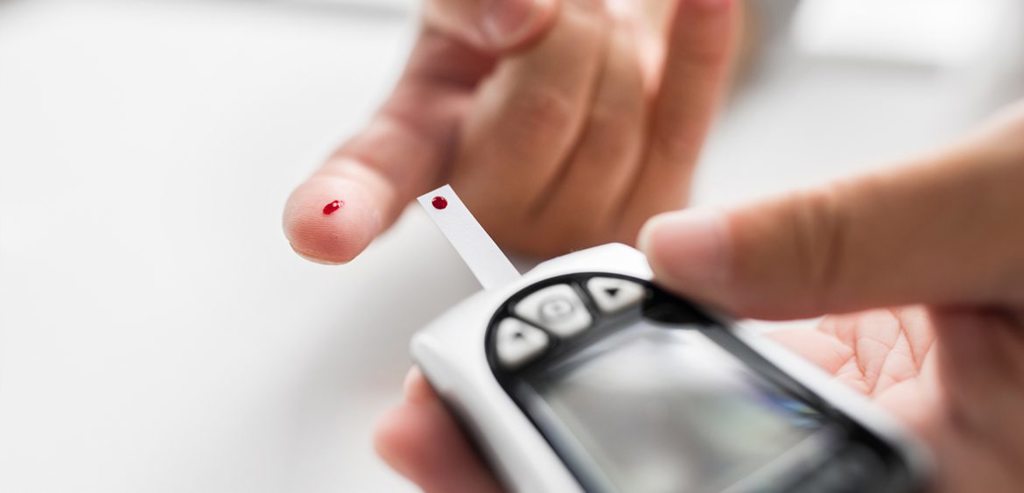Highlands Commended for Diabetes Education

Diabetes is a horrible disease. The toll it’s taking on Americans is staggering. According to the American Diabetes Association:
- Diabetes is the seventh leading cause of death with 252,806 people dying of diabetes in 2015.
- 1.5 million Americans are diagnosed with new cases of diabetes every year.
- 30.3 million Americans or 9 percent of the population have the disease.
- Another 84.1 million Americans or almost a third of the population have pre-diabetes, which often leads to diabetes.
- In Pennsylvania, 12 percent of the population have the disease and 35.8 percent of the population have pre-diabetes.
- 25 percent of the nation’s senior citizens have diabetes.
- The total costs for diabetes in 2015 were $237 billion for medical expenses and $90 million in reduced productivity.
In addition, diabetes can lead to many serious problems including blindness, heart problems, neuropathy and amputations.
A chronic disease, diabetes occurs because the body is unable to use blood sugar (glucose) properly. Type 1 diabetes occurs, mostly in young people, when insulin-producing cells are damaged or destroyed and stop producing insulin, which is needed to move blood sugar into cells throughout the body. The resulting insulin deficiency leaves too much sugar in the blood and not enough in the cells for energy.
Type 2 diabetes, which is much more common than Type 1, occurs when insulin is produced normally in the pancreas, but the body is unable move glucose into the cells. At first, the pancreas will create more insulin to overcome the body’s resistance, but eventually the cells wear out. At that point the body slows insulin production, leaving too much glucose in the blood.
Diabetes is often worse for people rural areas, which lack the modern medical facilities found in urban areas.
However, that’s not the case here in Fayette County where Highlands Hospital has an excellent diabetes center which offers numerous educational programs and other services to individuals with all types of diabetes.
Education is crucial for people with diabetes. While there’s no cure for the disease, it can be controlled, mainly through diet and exercise.
Bridgette Lowry, the certified diabetes educator at the center, notes that the first appointment is always one-on-one.
“Diabetes care is 99 percent the person who has it. It’s not a lot of doctor management,’’ noted Lowry.
While normal blood sugar levels are considered below 5.7, the American Diabetes Association’s goal for people with Type 2 diabetes is to achieve an A1C level below 7.0. Lowry said the center’s education programs seem to be working.
“We have group classes, and these are extremely helpful. Fifty four percent of the people who attend our diabetes classes achieve an A1C of less than 7. That’s huge.” Lowry said.
Lowry said it’s not only important to educate patients, area doctors also need to realize the importance of diabetes education in successfully treating their patients. Referrals are needed for the educational services which are covered by most insurance plans.
“I do have some doctors who are really good about referrals,” Lowry said.
Janelle Sepkovic, a certified Registered Nurse Practitioner, from the Dr. James Oppy practice in Connellsville, said the diabetes center is a vital resource.
“The Diabetes Center has become such an important resource for our practice. The knowledge and skill of the educators is reflected by overall A1C reduction in our diabetic population. The collaborative relationship that we have with the center has successfully bridged a large gap in diabetic management in our community,” Sepkovic stated.
But the problem is that many people may not even know they have diabetes. That’s why it’s important for all adults to get checked for diabetes, which can be detected by blood testing. The disease can be hereditary so people who have family members with diabetes should be particularly careful. Senior citizens should also get tested since they’re more likely than others to get the disease.
Often times there are no symptoms for people with diabetes. When symptoms do occur, they can include urinating often, feeling very thirsty, feeling hungry even though you’ve eaten, extreme fatigue, blurry vision, cuts and bruises that are slow to heal, unexplained weight loss and tingling, pain or numbness in hands and feet.
For more information or to set up an appointment, contact the diabetes center Monday through Friday 8 a.m. until 4 p.m. at 724-628-8008.
The center can offer plenty of help to those suffering from diabetes. The staff there is very informative and supportive. But you have to be there to take advantage of their expertise. Don’t delay. Give the office a call today. It just might be the most important call you’ll ever make.
DECEMBER 03, 2018
BY MARK O’KEEFE
Mark O’Keefe is a contributing editorial writer for the Daily Courier.
